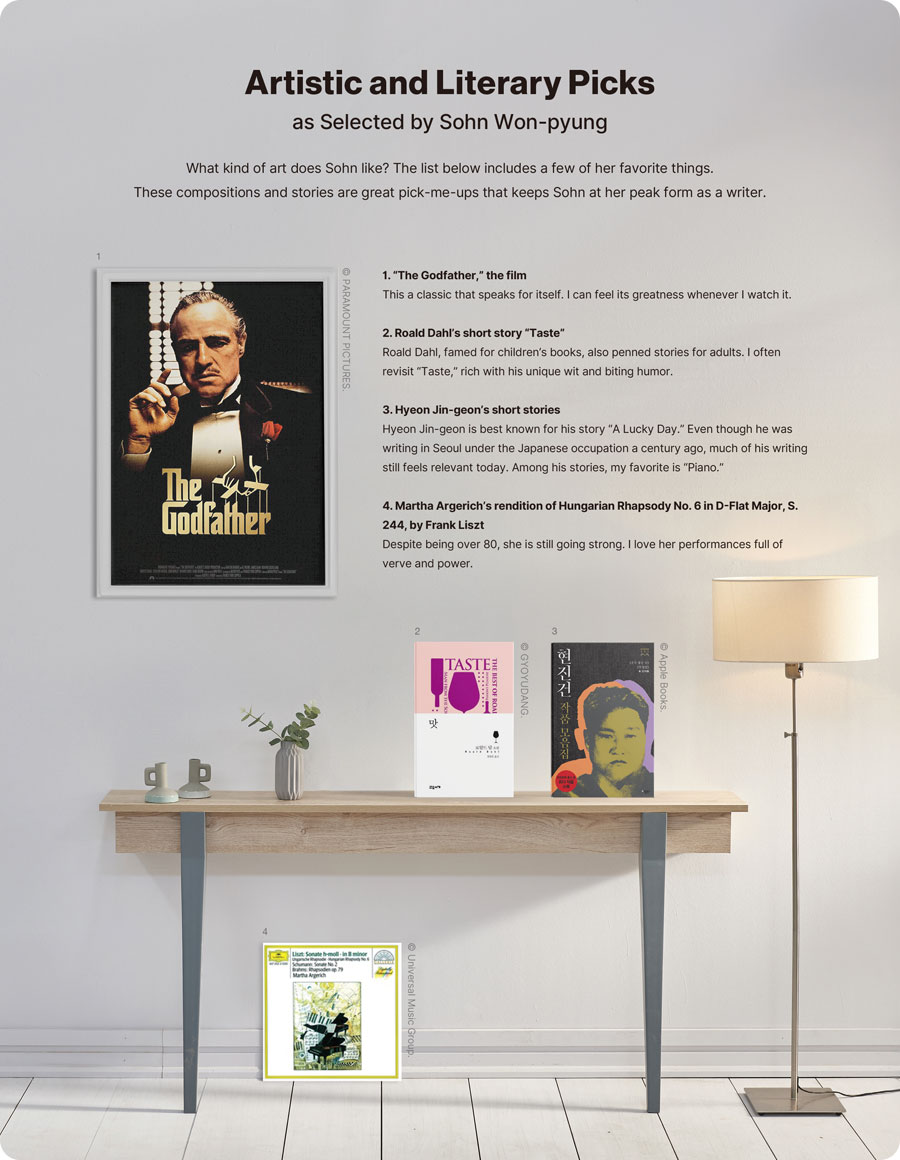Fictional worlds built of sentences spanning hundreds of pages can change the real world. Just ask Sohn Won-pyung, who made her reputation as a writer with the publication of her novel “Almond” in 2017. “Almond” sold 1.3 million copies in Korea alone and has been translated and published in 30 countries. What is it about Sohn’s novels that steal people’s hearts? We sat down with her to talk about her writing. Our takeaway from the conversation is that Sohn’s books reflect her empathy for the world and her fondness for her readers.
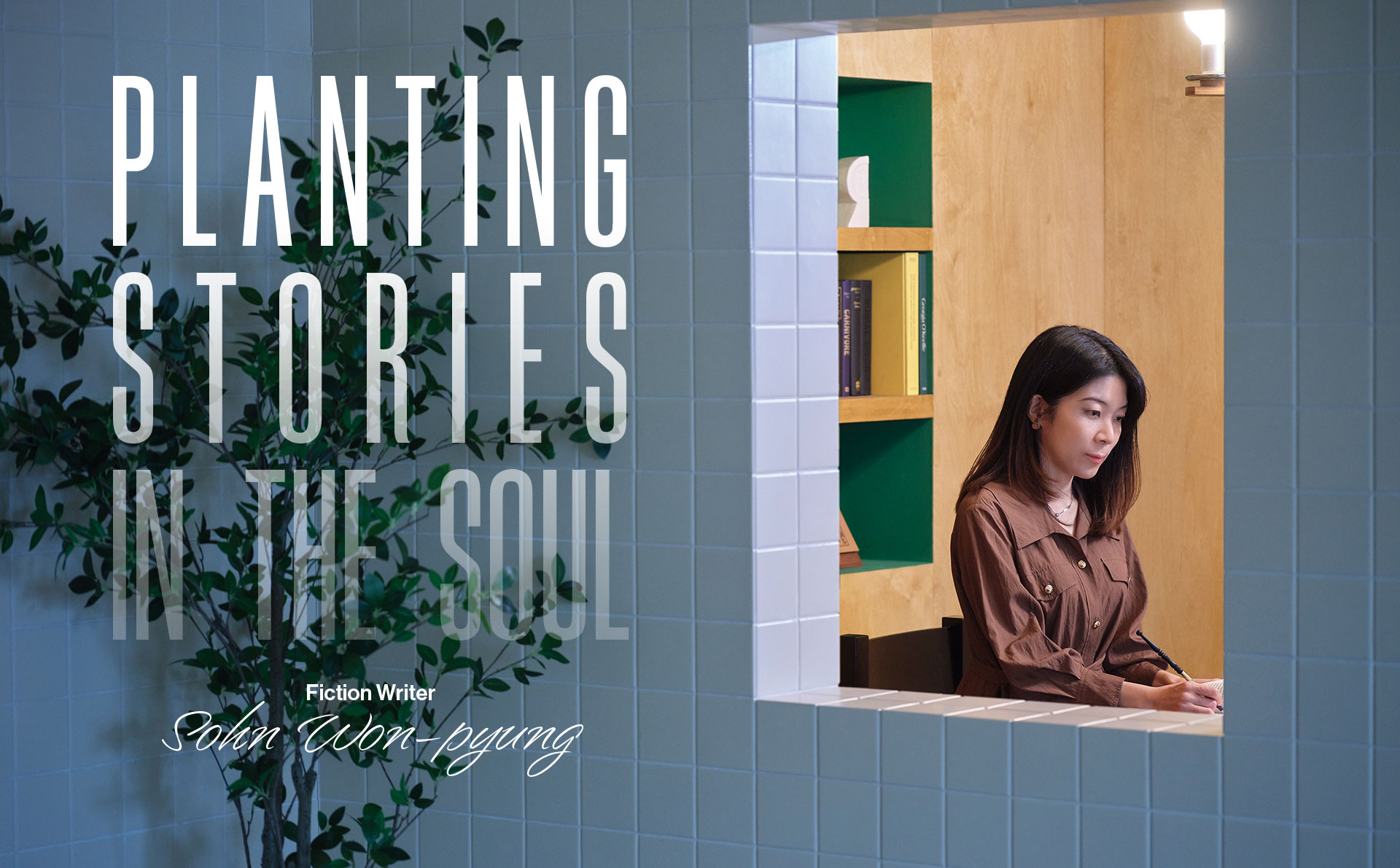
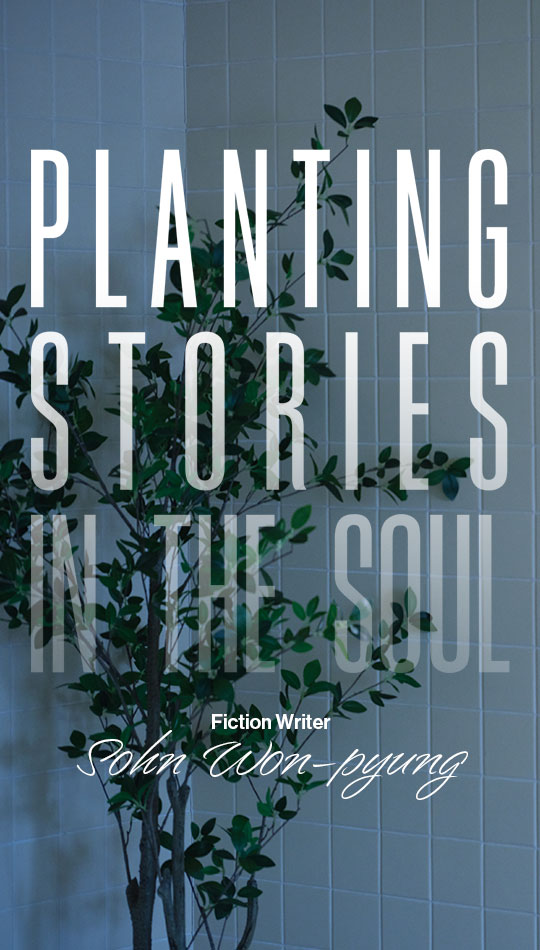
Writer. Sung Ji Yeon
From Making Movies to Writing Fiction
Sohn Won-pyung wasn’t always a writer—she started out in the movies. While she had dreamed of being a writer because of her love of books, she was content living her life without chasing that dream. As an adult, she decided to work in film because of the flexible work schedule. As she moved from one set to another, she found movies charming, but there were some things she found chafing. “I like making stories, but with movies, you have to work with many other people. So I found myself fantasizing about something I could start on my own and finish on my own,” Sohn says. Once she realized she wanted to try her hand at the fiction she’d always enjoyed so much, she set straight to work on some practice pieces.
And so it was that Sohn published her first novel “Almond” in 2017. She has released quite a few books since then including “Counterattack of the Thirty,” “April Snow,” “Prism” and “Majestic Foxtail.”
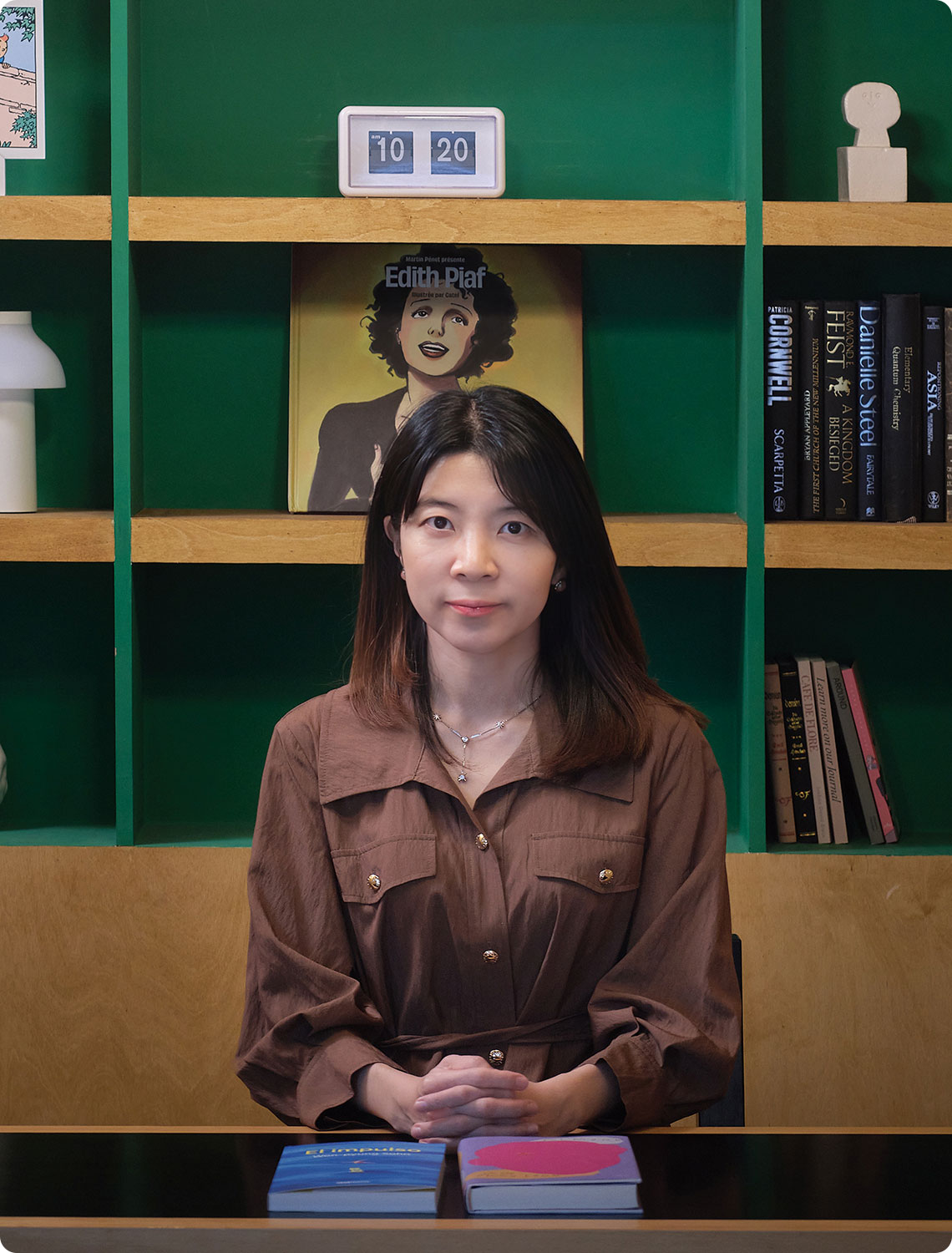
Creating a World
Fiction isn’t easy to make. Everything has to emerge from the writer’s head; every element must have a compelling reason for being in the story. So how does Sohn go about writing her stories? And how has she created stories that have brought so many people to laughter and to tears?
“I start with the question: What kind of story do I want to tell? Sometimes, I hear things from my friends or notice things in my daily life that stay with me. If I let them germinate, they give me ideas about what I’d like to write about,” she says.
It was that sort of process that led to Sohn’s best-known novel “Almond.” The idea for the novel came to her one day when she was a new mother raising her child. She realized that little children can only communicate through their emotions before they have the powers of speech. “Emotions enable me to communicate with my child; they enable my child to reach out to the world. I remember how wonderful that seemed. But all of a sudden, it occurred to me that the opposite might be true as well. I figured there could be people with no emotions, which got me curious about what would connect them to the world. One thing led to another, and soon, I was wondering what I would do if that were my child. That inspired the novel ‘Almond,’ which is about a teenage boy with hardly any emotions.”
Sohn’s novel “Tube” came about in a similar way. Her idea for the novel came from an online post she’d read. In the post, someone going through a hard time asked if there were any stories about people who had failed and then later turned their lives around, but nobody commented on the post. Sohn resolved to write something to encourage that poster, which led to “Tube.”
After Sohn chooses her main idea, she comes up with a character best suited for telling that story. That initial planning stage is pretty fun, but it soon gives way to the grueling work of writing the rough draft. Stories that are in progress often include logical inconsistencies and characters whose words and behavior seem unnatural. So, Sohn lays a firm foundation to keep her fictional worlds from crashing down. She refers to books and other materials about the topic to make the story believable and regularly reviews the text to ensure the fictional world is being viewed not through her eyes but through her protagonist’s perspective.
“The hardest thing is making the elements of the story plausible. But that’s an important part of the process, so I keep pushing until I get to the point where I find it convincing,” she says.
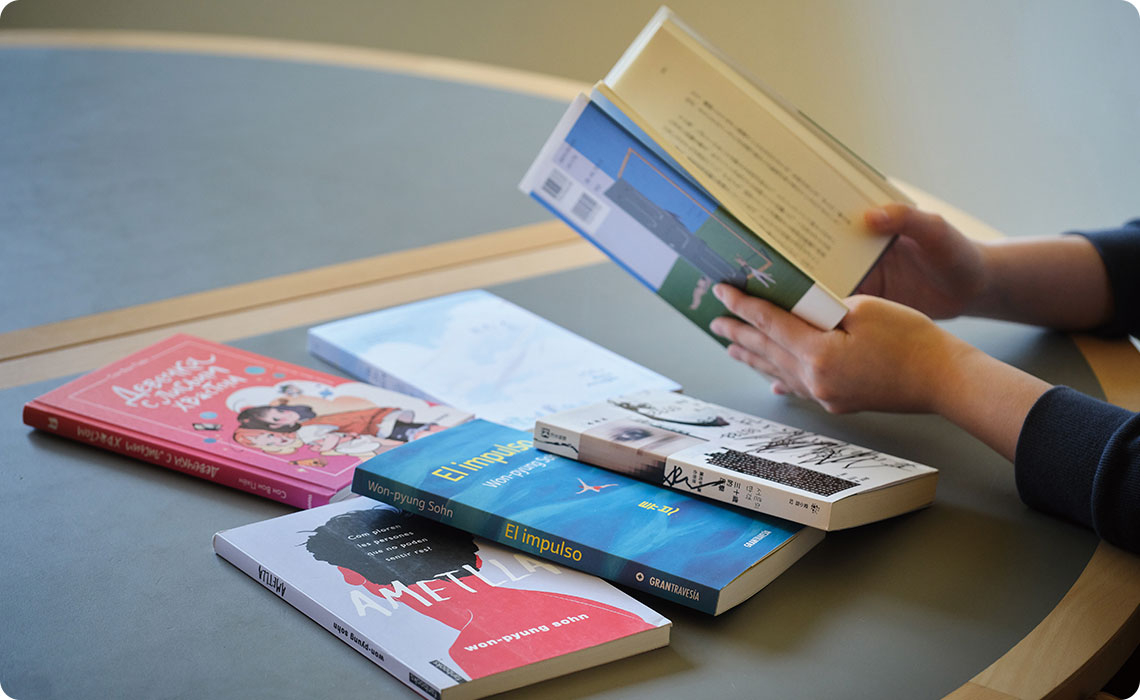

Planting Seeds in Readers’ Hearts
This is what Sohn’s writing process has looked like over the past seven years. Frankly, it sounds exhausting, and I asked where she finds the strength to persevere. She offered three reasons why she’s able to keep writing. “First, it’s something I can do. Second, it brings me great satisfaction. Third, I want to bring pleasure to my readers.”
When it comes down to it, Sohn has a true talent for writing. Sometimes, she’s seized by the urge to leave her work behind, but what always convinces her to pick up the pen again is the thought that there’s nothing else she can do as well. And once her books are complete, they bring her satisfaction. She says that books’ physicality brings a sense of accomplishment she doesn’t get from movies, which can be canceled in production, leaving nothing to show for all that work. The feeling that she was making something lasting was what kept her writing before any of her works had seen the light of day.
While those are some of the reasons Sohn gave for writing, she said her readers are her biggest source of energy. Even her most memorable experience as a writer was related to a meeting with readers. “After a lecture in Poland, I was having a meal at an open-air cafe when someone struck up a conversation with me. ‘I was at your lecture, and I just love your novels. My grandmother has read them too and says they’re great. She says they deserve a broader audience.’ It was such a moving experience. For me, readers had felt as rare as unicorns. While writing my books, I often wondered if anyone would read them. So I was overjoyed to learn that an old lady from Poland had read my books.”
That’s why Sohn wants to give her readers the gift of “good fiction.” For Sohn, good fiction is an entertaining story that readers just can’t put down. At the same time, she hopes her readers will find some meaning in her books. “Reading obviously requires a time investment. So, I hope many people will have a meaningful time reading my books. I want to make books that don’t evaporate as soon as they’re finished but that plant a seed inside my readers. I want my books to be a tool that can open up more room in their hearts.”
We suppose Sohn could be called a farmer. Her interest in the world around her is the seed she tends until it brings forth a crop of novels. And her finished novels themselves plant seeds in the hearts of her readers that grow into a rich harvest of new stories.
If you haven’t run into any of Sohn’s books before, it may be worth remembering that translations of “Counterattack of the Thirty” and “Majestic Foxtail” will be coming out soon. Something else to look forward to is two upcoming novels, one about a pop idol and another about an aging society with a low birth rate. So don’t hesitate, but jump right in. Once immersed in her fictional world, you’ll learn why the world is so enamored with her fiction.
